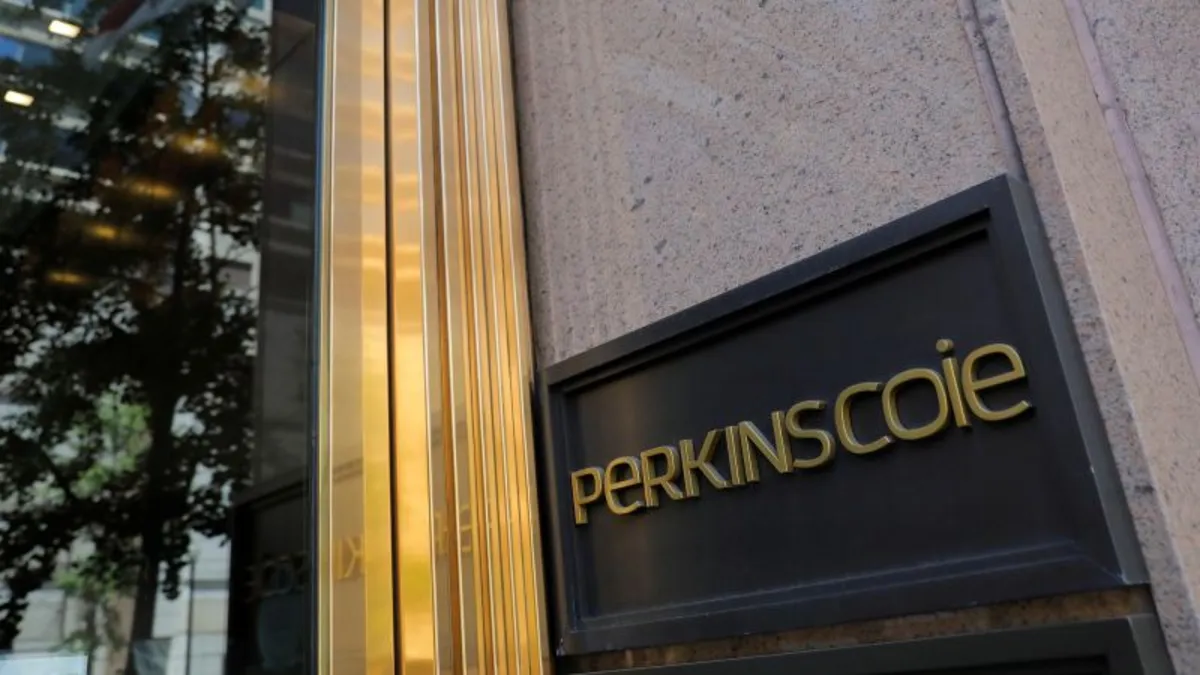
A federal judge has intervened to halt significant portions of President Donald Trump’s executive order that specifically targeted the law firm Perkins Coie, which has ties to the Democratic Party. US District Judge Beryl Howell sided with Perkins Coie, a firm known for representing Hillary Clinton during the 2016 presidential campaign and engaging in election litigation that Trump has consistently opposed.
In a decisive move, Judge Howell granted Perkins Coie’s request for a temporary restraining order against certain aspects of Trump’s executive order. The judge blocked provisions that restricted government contracts with clients of the firm and imposed limitations on the firm’s employees. This includes potential bans on hiring Perkins Coie employees for government positions and restricting their access to federal buildings.
During a lengthy court session, Judge Howell described the executive order as “a punishment for a singled-out entity being disloyal.” She drew a vivid comparison to the Queen of Hearts from Alice in Wonderland, asserting that such arbitrary decisions cannot define the reality of governance in the United States. Howell, who was appointed by former President Barack Obama, articulated that the case raises critical questions about Trump’s executive authority.
Howell characterized the order as an unconstitutional utilization of “taxpayer dollars and government resources … to pursue a personal vendetta.” She emphasized that while the president is entitled to his personal beliefs, he cannot utilize the federal government to target political adversaries. “This is not how our legal system operates,” she stated.
Judge Howell expressed concern over the broader implications of Trump’s executive order, arguing that it could create a chilling effect within the legal profession. She noted that the order represents an “extreme, unprecedented effort” that could undermine the integrity of the entire legal system. “The justice system relies on zealous advocates who can effectively represent their clients,” Howell remarked, warning that the executive order threatens this fundamental principle.
The ruling came after a hearing where Chad Mizelle, the chief of staff to Attorney General Pam Bondi, presented the government’s argument that the president should be trusted to take such actions without scrutiny. Mizelle suggested that the president has the authority to blacklist businesses or individuals at his discretion, a claim that alarmed Judge Howell.
Howell expressed disbelief at Mizelle’s assertion, stating it sent “chills down my spine.” She drew a parallel between the president’s proposed actions and economic sanctions imposed by the Treasury Department for national security purposes. Mizelle maintained that the president holds the right to make such decisions without judicial intervention.
Perkins Coie’s attorney, Dane Butswinkas, countered the government’s claims by arguing that the national security justification presented by the Trump administration was a red herring. He stated that the current approach reflects a “different Constitution” than the one traditionally upheld. Butswinkas warned that the executive order could lead to the loss of major clients for Perkins Coie, ultimately threatening the firm’s survival.
Additionally, he highlighted that the order has resulted in the cancellation of crucial meetings between Justice Department prosecutors and Perkins Coie lawyers, severely impacting their ability to represent clients in ongoing legal matters. Judge Howell underscored that the executive order may violate several Constitutional protections, including the right of defendants to choose their attorneys and the First Amendment right to petition the government.
In conclusion, the federal court’s ruling against President Trump’s executive order represents a significant moment in the ongoing dialogue about executive power and its limits. As Judge Howell noted, the absence of due process for Perkins Coie prior to the issuance of the executive order raises serious legal and ethical concerns that could have lasting repercussions across the legal landscape.
This unfolding legal battle continues to highlight the tensions between presidential authority and the rights of individuals and organizations operating within the legal system. The implications of this case are likely to resonate throughout the political and legal communities, prompting further examination of executive power and its boundaries.